Malawi History Facts and Timeline
(Malawi, MW, South-East Africa)
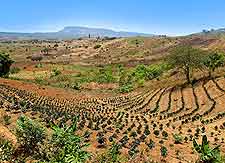
Formerly a British colony, the country of Malawi is renowned as one of Africa's friendliest countries, while its landscapes and scenery are second-to-none. History enthusiasts are well-catered for too, with cities such as Zomba featuring an assortment of old colonial architecture.
The recorded history of Malawi dates back to around the 10th century, when Bantu-speaking migrants arrived and displaced hunter-gatherer types, who had inhabited the lands for many years. The name itself is thought to be derived from the Maravi Kingdom centred on the lake that dominates this country.
European Contact
The first Europeans to visit Malawi were the Portuguese, during the 1600s. A mix of Portuguese traders and soldiers came across a number of tribes which had united to form a kingdom under one main ruler. As tribesmen began to trade with the Portuguese individually, the tribal alliance started to break down and by 1700, it had ceased to exist.
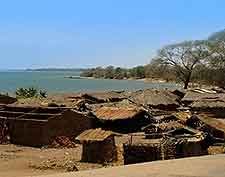
The Swahili-Arab Slave Trade
The slave trade in Malawi was centred on Nkhotakota, where slaves began the journey to Kilwa on the coast. Nowadays, tourists visiting Nkhotakota can join a walking tour and follow the historic route used by the slave traders.
Sightseers can also visit the actual tree where Scottish missionary, David Livingstone, famously held a lakeside meeting in an attempt to end the slave trade.
British Rule and Independence
Under the British, Malawi was known as Nyasaland and administration was centred on the colonial capital, Zomba, from 1891. Money was incredibly tight during these times, since the colonial administration was given the task of governing a population of some two million people with a very meagre budget.
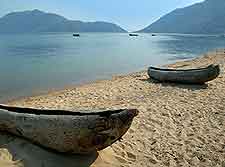
Dissent against the British regime began in 1953, when the British formed the Central African Federation (often abbreviated as CAF), which linked Nyasaland with Rhodesia. This fuelled supporters of the nationalist Nyasaland African Congress (NAC) and in turn led to the return of one of their most influential backers, the wealthy and powerful Hastings Kamuzu Banda, in the year of 1958.
Banda was jailed for a year in 1959 for his beliefs, along with many other nationalists and demonstrators. On his release, he was invited to help draw-up a new constitution, which included some welcome political reform. His release was a turning point in Malawi history, as he became Prime Minister during 1963 and oversaw the subsequent disbanding of the CAF. Malawi eventually became independent on 6th July, 1964.
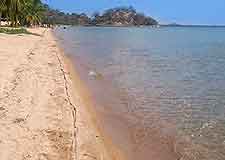
Post-Independence
Under Banda's single-party rule, all opposition to the Malawi Congress Party (MCP) was outlawed. In fact, Banda announced that he would be 'president-for-life'. Despite this rather undemocratic and autocratic constitution, Banda's Malawi went from strength-to-strength economically. Without extensive mineral resources or a coastline to make use of, Banda's own personal business empire had a big part to play in increasing the country's overall wealth.
The capital status was transferred to Lilongwe, where a beautiful, green New Town was built alongside the existing village, the Old Town. Nowadays, tourists visiting Lilongwe can learn all about traditional Malawian culture at the Kumbali Cultural Centre, where traditional dancing, music and food await.
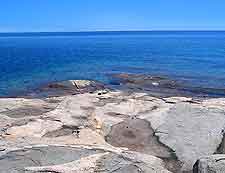
One-party rule lasted until 1994, when the first multi-party elections in the history of Malawi took place. By then, Banda was still running the country as a nonagenarian (aged over 90) and his senile misrule had bankrupted the country. This resulted in a mass dispersion of its people, who were looking for work elsewhere in the region. Bakili Muluzi became president after these elections, and was later followed by Bingu wa Mutharika.
Mutharika's presidential era has seen its ups and downs, however, amid allegations of election fraud, as well as the 2011 protests against the cost of living and general governance. These protests actually led to the deaths of 18 people.
Tourism in the Country
Many tourists arriving today are immediately drawn to Lake Malawi, which comes with an especially beautiful shoreline and some interesting diving and snorkelling opportunities.
Those choosing to base themselves in Lilongwe will find a fairly modest city, with busy markets, modern streets and shops, lively tobacco auctions and a popular nature reserve, as well as plenty of hotels.
 Formerly a British colony, the country of Malawi is renowned as one of Africa's friendliest countries, while its landscapes and scenery are second-to-none. History enthusiasts are well-catered for too, with cities such as Zomba featuring an assortment of old colonial architecture.
Formerly a British colony, the country of Malawi is renowned as one of Africa's friendliest countries, while its landscapes and scenery are second-to-none. History enthusiasts are well-catered for too, with cities such as Zomba featuring an assortment of old colonial architecture.
 Dissent against the British regime began in 1953, when the British formed the Central African Federation (often abbreviated as CAF), which linked Nyasaland with Rhodesia. This fuelled supporters of the nationalist Nyasaland African Congress (NAC) and in turn led to the return of one of their most influential backers, the wealthy and powerful Hastings Kamuzu Banda, in the year of 1958.
Dissent against the British regime began in 1953, when the British formed the Central African Federation (often abbreviated as CAF), which linked Nyasaland with Rhodesia. This fuelled supporters of the nationalist Nyasaland African Congress (NAC) and in turn led to the return of one of their most influential backers, the wealthy and powerful Hastings Kamuzu Banda, in the year of 1958.
 One-party rule lasted until 1994, when the first multi-party elections in the history of Malawi took place. By then, Banda was still running the country as a nonagenarian (aged over 90) and his senile misrule had bankrupted the country. This resulted in a mass dispersion of its people, who were looking for work elsewhere in the region. Bakili Muluzi became president after these elections, and was later followed by Bingu wa Mutharika.
One-party rule lasted until 1994, when the first multi-party elections in the history of Malawi took place. By then, Banda was still running the country as a nonagenarian (aged over 90) and his senile misrule had bankrupted the country. This resulted in a mass dispersion of its people, who were looking for work elsewhere in the region. Bakili Muluzi became president after these elections, and was later followed by Bingu wa Mutharika.